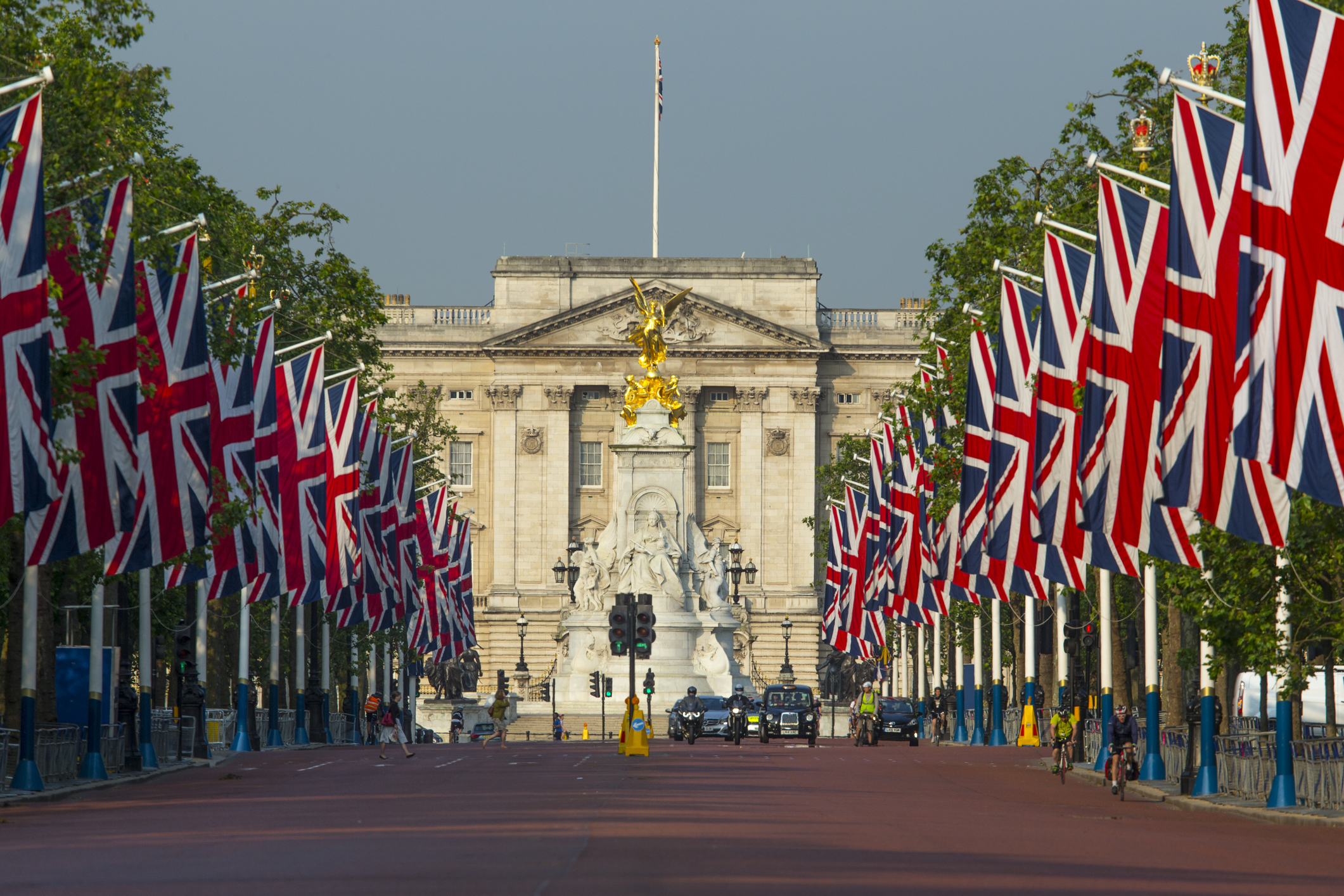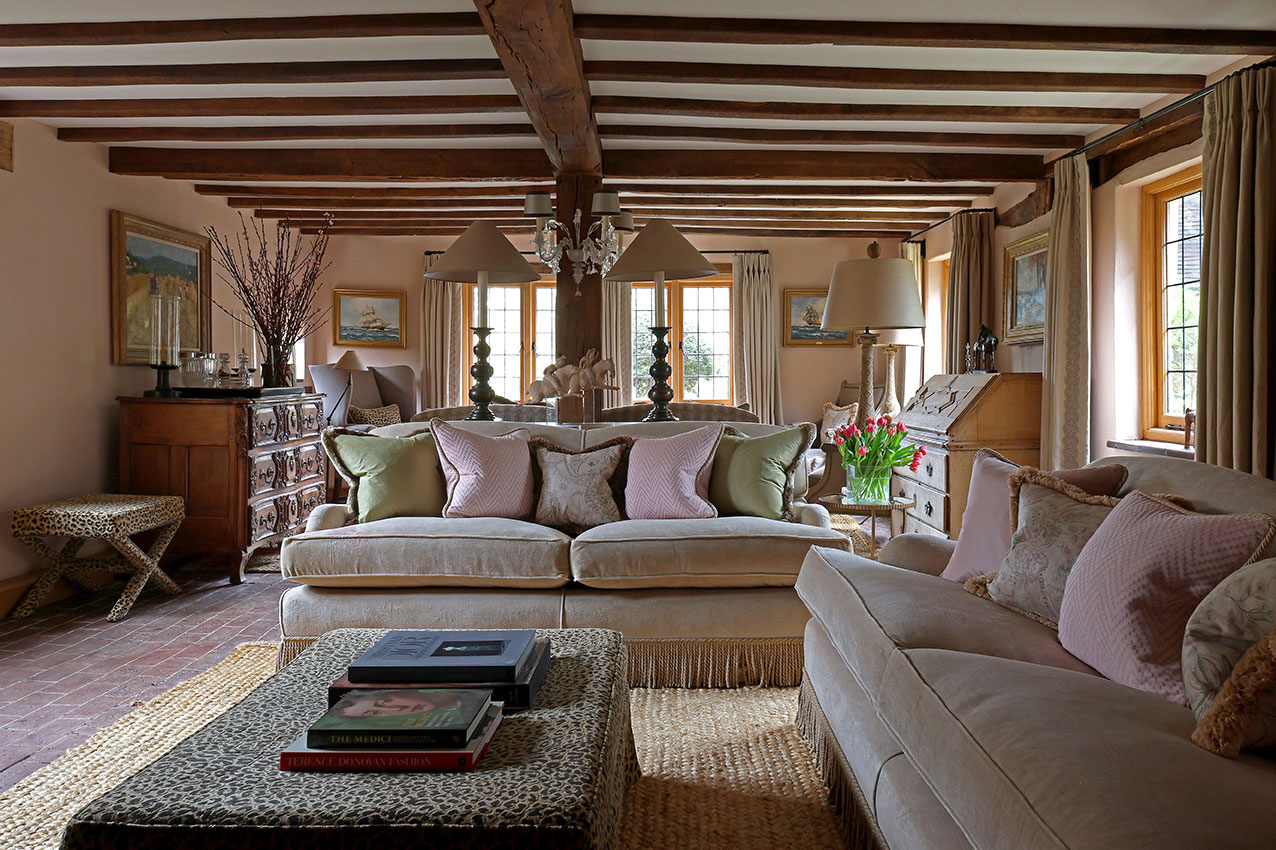'I enjoy seeing people having a good time. That, for me, is the key': Meet some of London's best restaurateurs
The secret to success in hospitality is often a simple one — give people what they want and do it well.
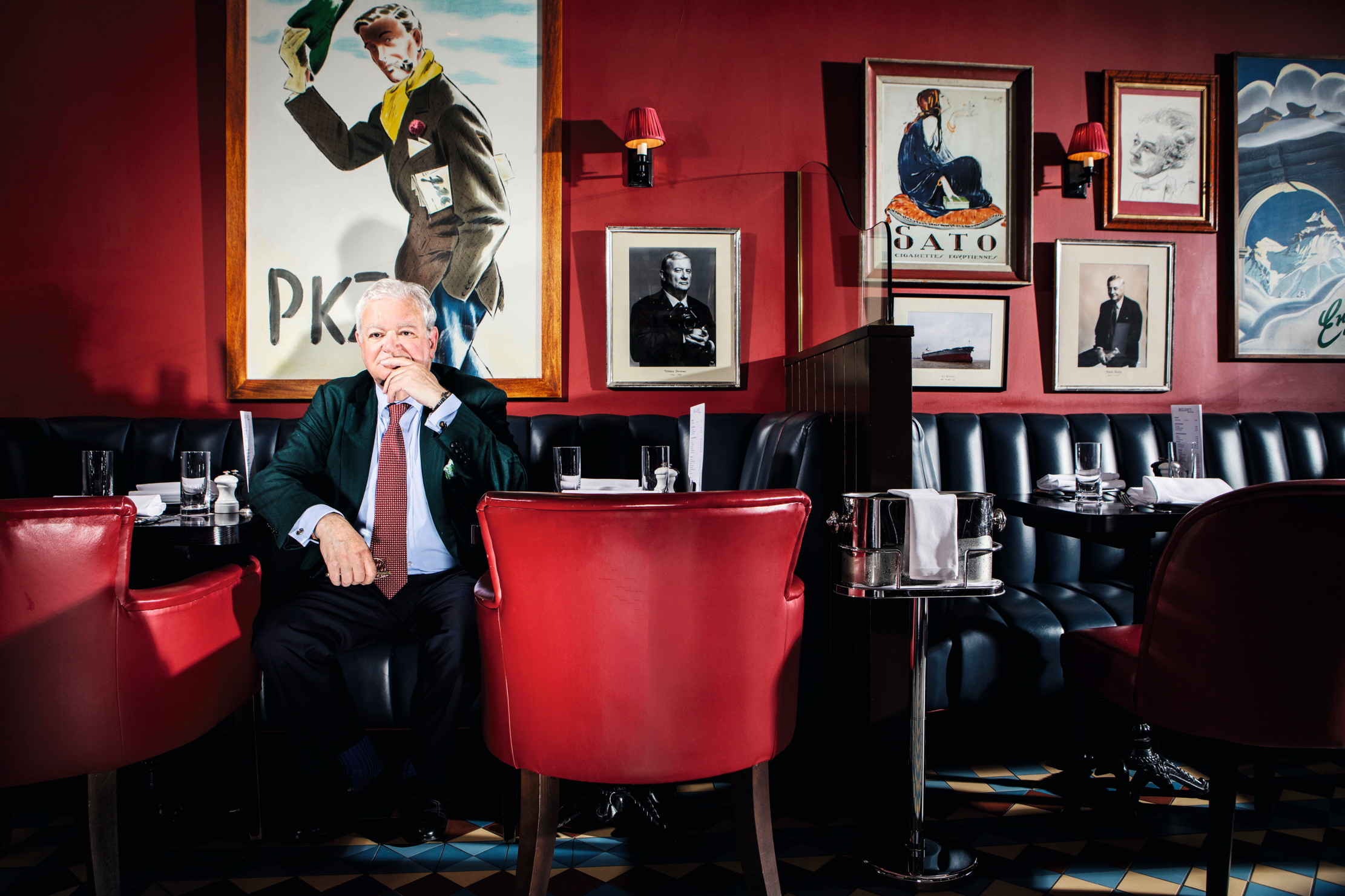

Le patron mange ici. Four words that encapsulate the very essence of any decent restaurant and proof, if proof be needed, of the eternal importance of the ever-present restaurateur. Because in a world where corporately faceless groups become ever more dominant, a handshake, kiss or quiet word from a much-loved proprietor is still an essential part of any decent lunch. Not only the face of their restaurants, but the heart of them, too.
Growing up, restaurateurs were the very centre of their world. The ebullient Domenico ‘Mimmo’ Mattera at Mimmo D’Ischia in Pimlico, his shirt unbuttoned to the navel, a gold medallion glinting atop a thick thatch of chest hair. Or the late, great Mark Birley at Mark’s Club or Harry’s Bar, eternally elegant, and meticulous in every way. Mara Berni, the gregarious, gossipy dining doyenne of San Lorenzo would come and perch at your table, whereas my uncle, Simon Parker Bowles, would not only greet each and every punter at Green’s, but lunch at booth number one every day — where he could keep a smoothly patrician eye over the entire room.
A great restaurant is never simply about the food. And a great restaurateur is about so much more than simply greeting the punters, then getting stuck into a serious lunch. The best combine charm, diplomacy, business nous and good old-fashioned hard work. They must earn the respect of their team, rather than attempt to impose it. Although sympathetic to the needs of their staff, they are still very much the boss.
The following five London restaurateurs (none of whom cook at their restaurants) are all male, English and resolutely old school. This is intentional. Not because there aren’t any great women restaurateurs. Of course there are. But the very exalted likes of Ruthie Rogers, Angela Hartnett, Claire Smyth, Ravinda Bhogal, Abbie Lee, Monica Galetti, Asma Khan, Hélène Daroze et al are chef restaurateurs, a different breed altogether. Non-English masters, such as Didier Garnier at Le Colombier, Otto Albert Tepasse at Otto’s, the Pengs at Hunan, the Sethis at Gymkhana and the rest of the excellent JKS group, and the Mathranis and Panjabis at Chutney Mary, deserve their own separate piece.
'There will always be room for our kind of service. I believe good service will last forever'
Gavin Rankin
A perfectly mixed martini with Gavin Rankin, the immaculately suited proprietor of Bellamy’s in Mayfair, is always something to relish. As we sit at the bar, at the start of the lunchtime service, Mr Rankin looks out over the room, and smiles. It’s filling up with the usual mix of bankers, grande dames, dukes and those simply in search of a good old-fashioned French lunch. ‘It’s very important to be seen,’ he says, ‘to be actually here in the restaurant.’
He arrives at Bellamy’s at about 11am every day and eats lunch at the same table, often with some of his regular guests. He rarely leaves before 11pm. And although he plays a huge part in deciding the menu, he is a restaurateur of the old school, leaving the kitchens in the exceptionally capable hands of head chef Stéphane Pacoud, who has been with him since the restaurant opened in 2004.
Starting his career with Caviar Kaspia (on the same site where Bellamy’s is today) in the 1980s, he moved to Annabel’s, spending 11 years there as managing director. He is filled with nothing but respect for his old boss, Mark Birley, who had a ‘laser-like precision’, when it came to running his clubs — albeit ‘slow to bless and swift to chide’.
Sign up for the Country Life Newsletter
Exquisite houses, the beauty of Nature, and how to get the most from your life, straight to your inbox.
Service, for Mr Rankin, is everything. Or ‘good service, willingly given, largely silent’, as he puts it. ‘And not ruining a conversation by interrupting!’ It helps to have the brilliant Luigi Burgio as his maître d’. And a menu filled with French classics, from jambon persillé to steak tartare and îles flottantes. His wine list is also the best value in London. But what makes a great restaurant? ‘All we’re doing is offering honest food, well cooked, brought to you by nice people who want you to have a good time.’
Jeremy King
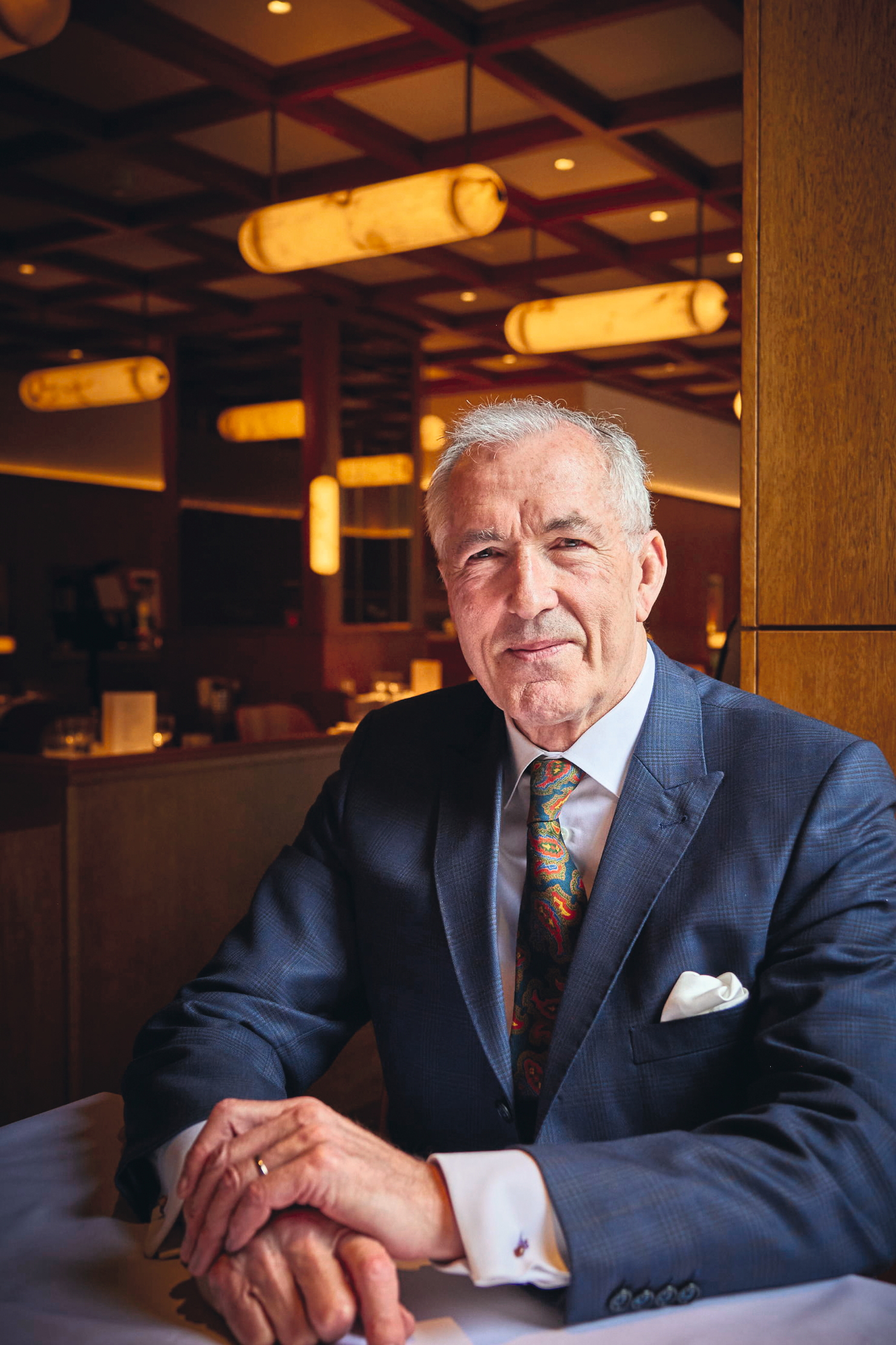
‘Like many people in the restaurant trade,’ says Mr King, a true legend of London dining, ‘I fell into hospitality for the simple reason that I didn’t know what I wanted to do with my life. I didn’t feel I would excel in the worlds that truly interested me — architecture, art, history, literature and music — only to discover, belatedly, that, in truth, being a restaurateur encompasses all those disciplines.’
With his partner, Chris Corbin, he transformed faded London classics Le Caprice, The Ivy and J Sheekey’s into dining masterpieces, where classic, but immaculately executed food was matched by slick service, a total lack of snobbery and an atmosphere that hummed with merry bonhomie. They sold that group and moved on to open The Wolseley, in Piccadilly (among others), which was one of London’s great restaurants. After a dispute with his backers in 2022, Mr King left and re-emerged, triumphant, with Arlington, on the site of the old Le Caprice. It is, as you might imagine, a massive hit. The Park opened recently, to rapturous reviews, and his relaunch of Simpson's in the Strand is imminent.
Mr King is very clear as to the demarcation between restaurant owner and restaurateur. ‘You might ask what the difference is,’ he explains, ‘and this is fundamental — understanding that restaurant owners conduct their business from the boardroom, whereas a restaurateur does so from the floor, and it invariably shows.’ He pauses. ‘Whether you are customer or staff, we all want to be loved, heard, recognised and cared for. Never is the adage more pertinent than: “Being a leader is not about being in charge, but looking after those in your charge.” ’;
What is the secret to a great restaurant? ‘Restaurateurs tend to create restaurants that they want to go to themselves,’ he goes on, ‘and hope there are enough similarly minded patrons, rather than concocting strategic assemblages of what is perceived to be wanted.’ His guests are often amazed to see him on the floor, late on a Saturday night, and ask why he is not at home, enjoying the fruits of his labours. ‘The easiest way to be a successful restaurateur,’ he always replies, ‘is the hard way.’
François O’Neill
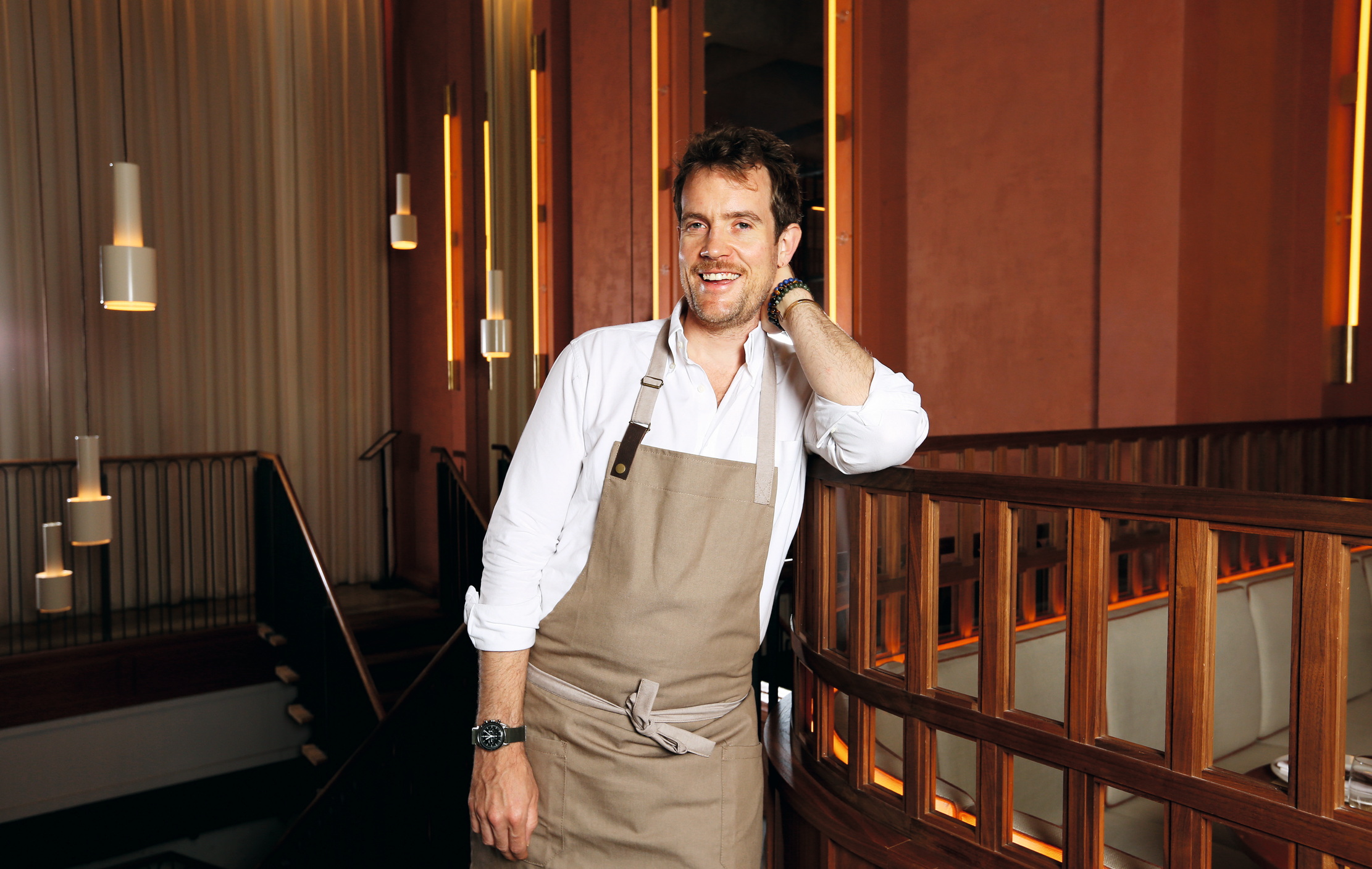
‘I grew up in and around the restaurant trade,’ explains François O’Neill, the owner of Maison François in St James’s. ‘My father, Hugh O’Neill, was the co-owner of Brasserie St Quentin in Knightsbridge and my first job was there as a pot washer. I moved on to be a chef and loved every moment. So many personalities in the kitchen, so many nationalities.’ He spent five years clattering the pans, before jumping to the other side of the pass in 2008, when he took over Brasserie St Quentin and rebranded it The Brompton Bar and Grill. ‘It was a steep learning curve,’ he admits, ‘as I had no experience on that side. I learnt on the run.’
In 2020, he opened Maison François and has barely seen an empty seat since. A constant presence on the floor, he welcomes punters, clears plates and ensures that every glass is full. What, then, is the secret to success? ‘I wish I knew!’ he grins. ‘But it’s about enjoying the reward, which is not necessarily financial. I get involved in everything from the food to the staff to the design. It’s a labour of love, and you need to love what you do, and be inspired by creating experiences for other people. And, somehow, turn that into a business. But if you get it right, it’s doing something really special.’ With that, he’s off. It’s lunchtime, and there’s a heaving restaurant to run.
Sam Hart
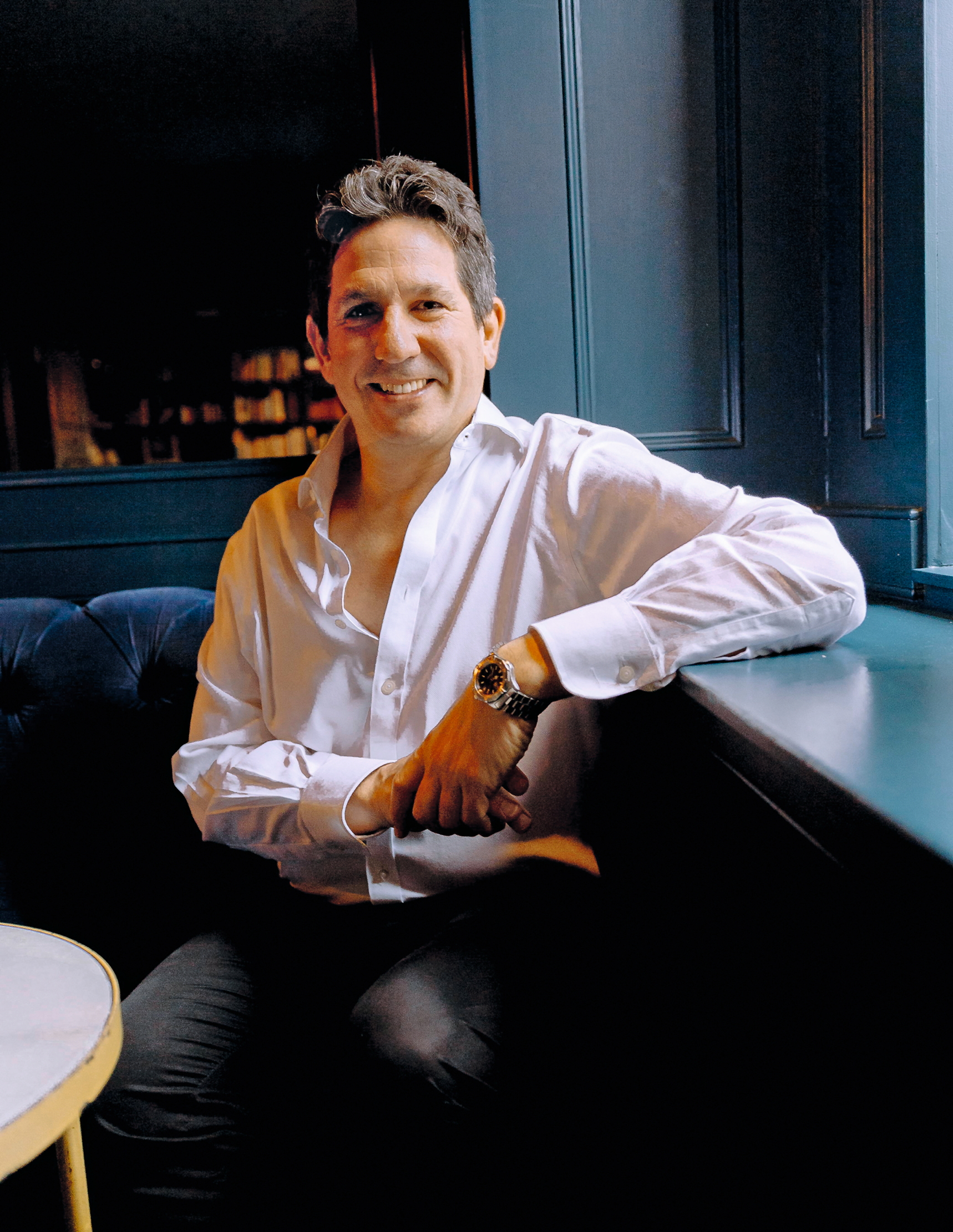
Like Mr O’Neill, Sam Hart grew up in the hospitality business, the eldest son of Tim and Stefa Hart, the owners of Hambleton Hall hotel in Rutland. ‘But I always said I’d have nothing to do with it and instead worked for a money broker.’ That took him to Mexico City, ‘where I ended up hating money broking, and loving Mexico’.
He opened up a nightclub with his friend Crispin Somerville, who is now managing director of El Pastor, Quo Vadis and The Drop, all Harts Group (of which Mr Hart is CEO) restaurants. After five years running the club, he ‘grew tired of the nocturnal existence’ and, after a couple more years ‘pottering around’ Barcelona with his wife, Robin, was so inspired by the food that he decided to open a Spanish restaurant in London with his brother, Eddie.
In 2001, Fino — which would become one of London’s most famous Spanish restaurants — opened in Fitzrovia. The brilliant Barrafina followed in Soho, then three more, before he opened Quo Vadis, in partnership with that magnificent chef proprietor, Jeremy Lee. El Pastor, Parillan and The Drop wine bar came next. Harts Group now has six brands and 14 venues.
‘It helps to be very hungry,’ Mr Hart says when asked about the art of hospitality, ‘and understand what it is that gives people real enjoyment.’ Back at Fino, one or other of the Hart brothers would be there every lunch and dinner. ‘That’s the restaurateur’s Holy Grail.’ As the group has expanded, however, ‘it is no longer physically possible for one of us to be everywhere, every day, however hard we try. Now, we put our faith in our brilliant managers and team. But I enjoy seeing people having a good time. That, for me, is the key’.
Andrew Love
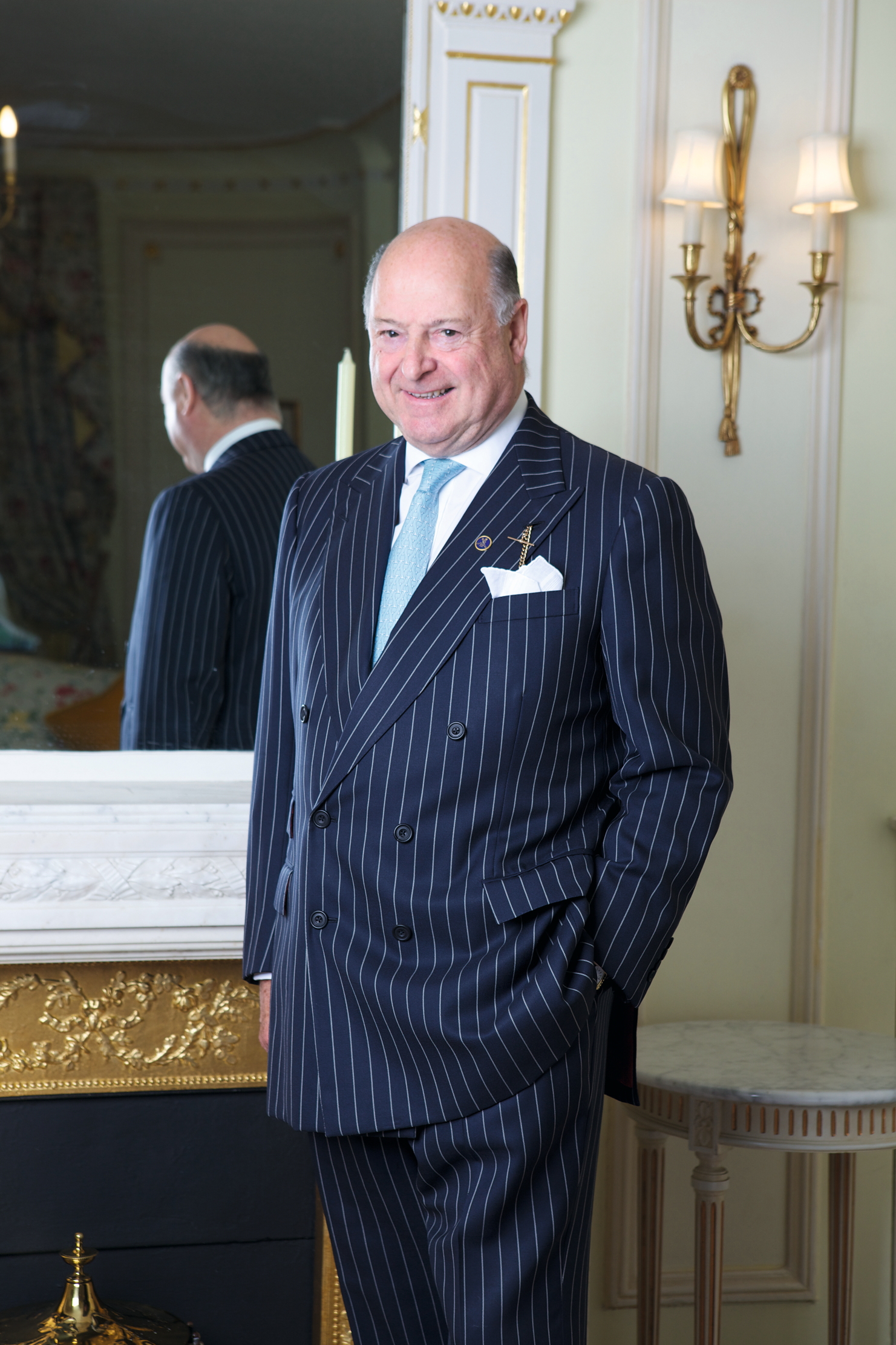
Andrew Love is a hospitality legend, having sat on the boards of numerous hotels and casinos, joining The Ritz Club in 1998 and the hotel in 2004, as deputy chairman, subsequently chairman. He stepped down in 2020 and is now senior adviser to The Ritz. ‘Hospitality is all about making sure people have a good time and get what they want. In terms of food, high-quality cooking, but giving them what they actually like.’ He tells the story of Kerry Packer, the late Australian billionaire, who only wanted ‘hamburgers and cheap beer. But that’s fine. We give people what they want’.
The Ritz restaurant is the last public dining room in London that has a strict jacket-and-tie dress code. ‘But this makes lunch or dinner here an occasion,’ he rightly argues. Smart clothes to match executive chef John William’s exquisite cooking. It’s one of the few restaurants I still get excited about visiting. ‘Here at The Ritz, it’s the theatre that makes it so interesting, As well as John’s cooking, of course. But there will always be room for our kind of service. I believe good service will last forever.’
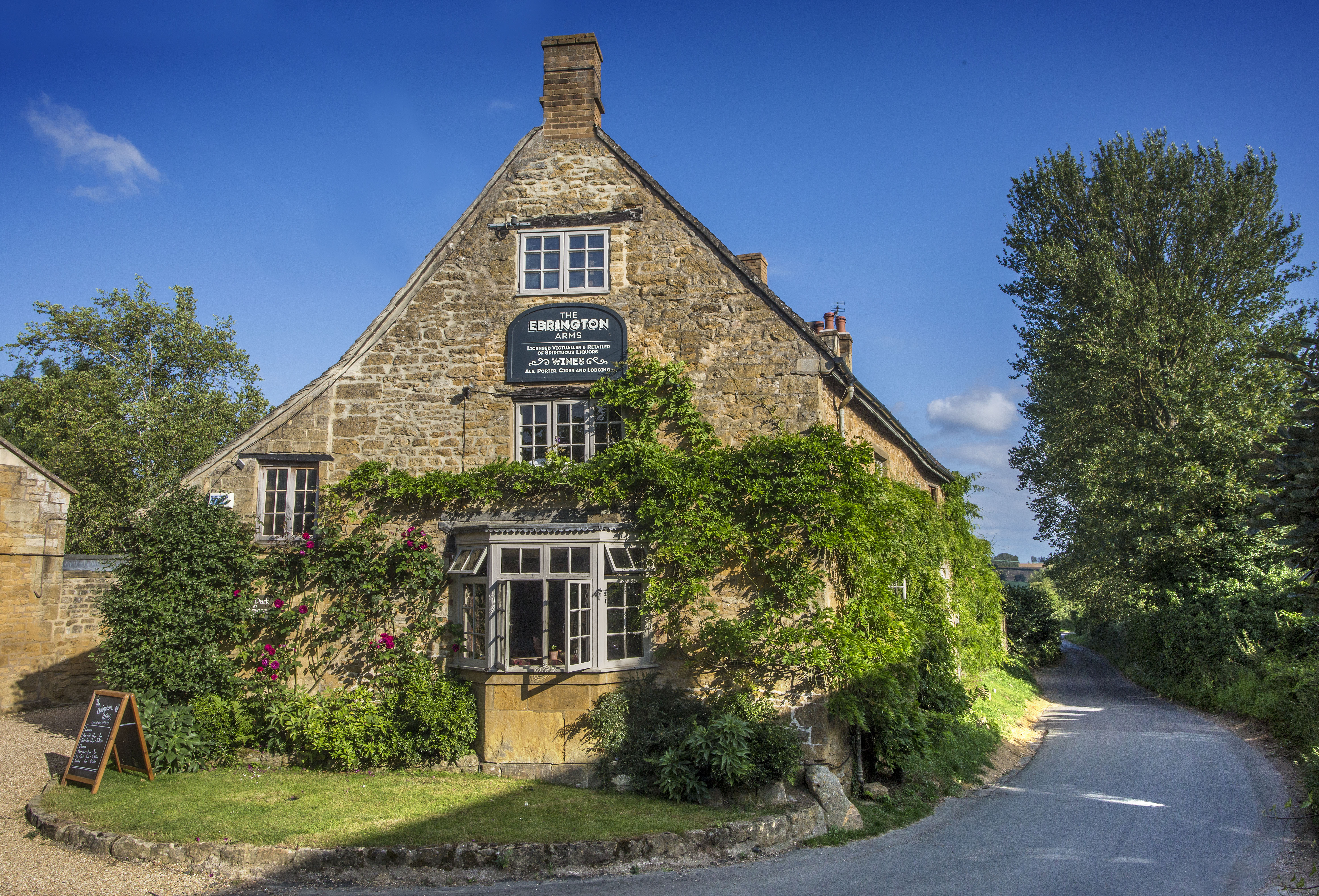
Why the great British pub is better than ever
The numbers show that pubs across the country are shutting down — but those that are still thriving are doing so
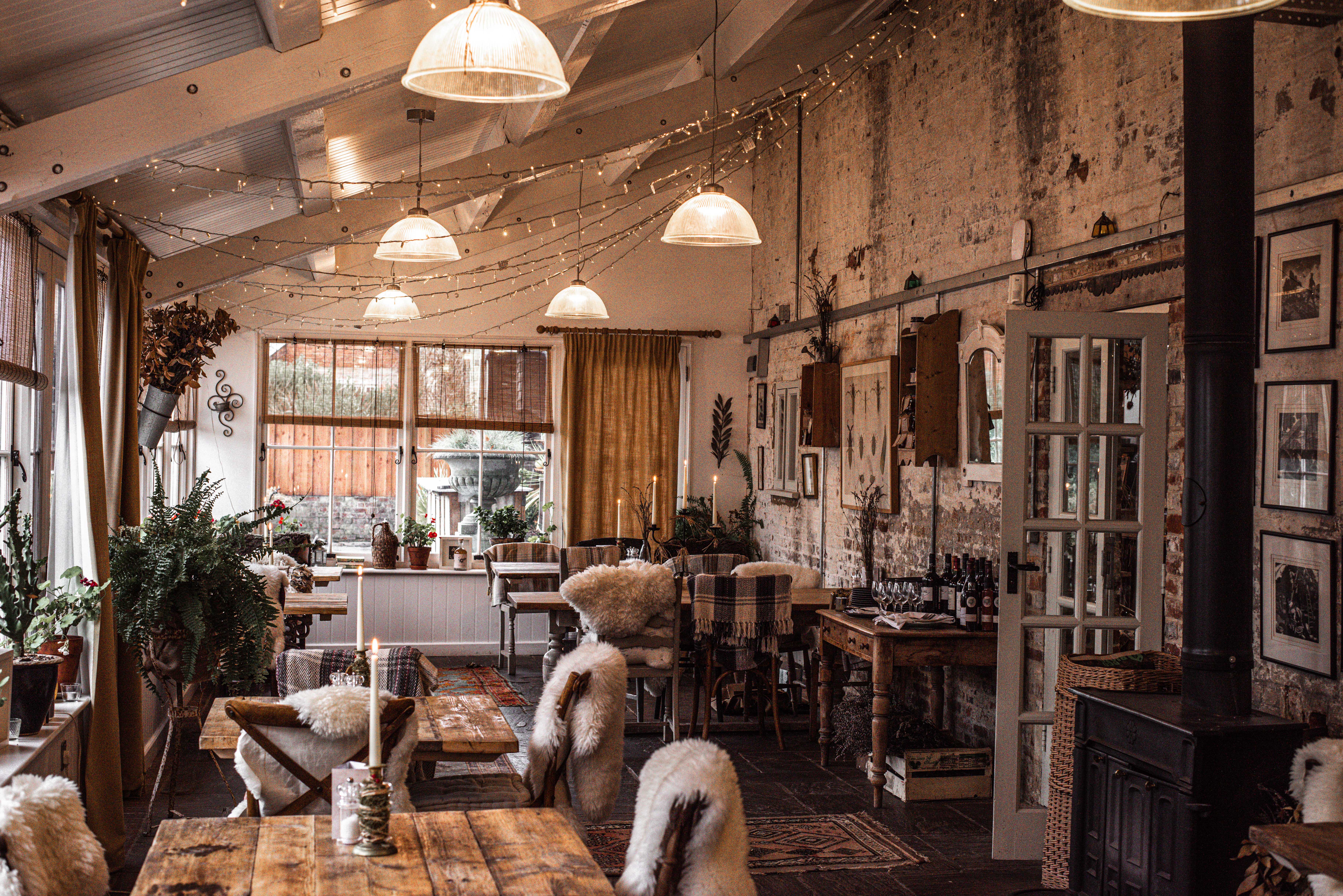
Credit: Pythouse Kitchen Garden
Pythouse Kitchen Garden: An ideal spot to reward yourself after battling past Stonehenge on the A303
After one too many sub-standard service station sandwiches, Rosie Paterson finds the Pythouse Kitchen Garden, a spot just off the
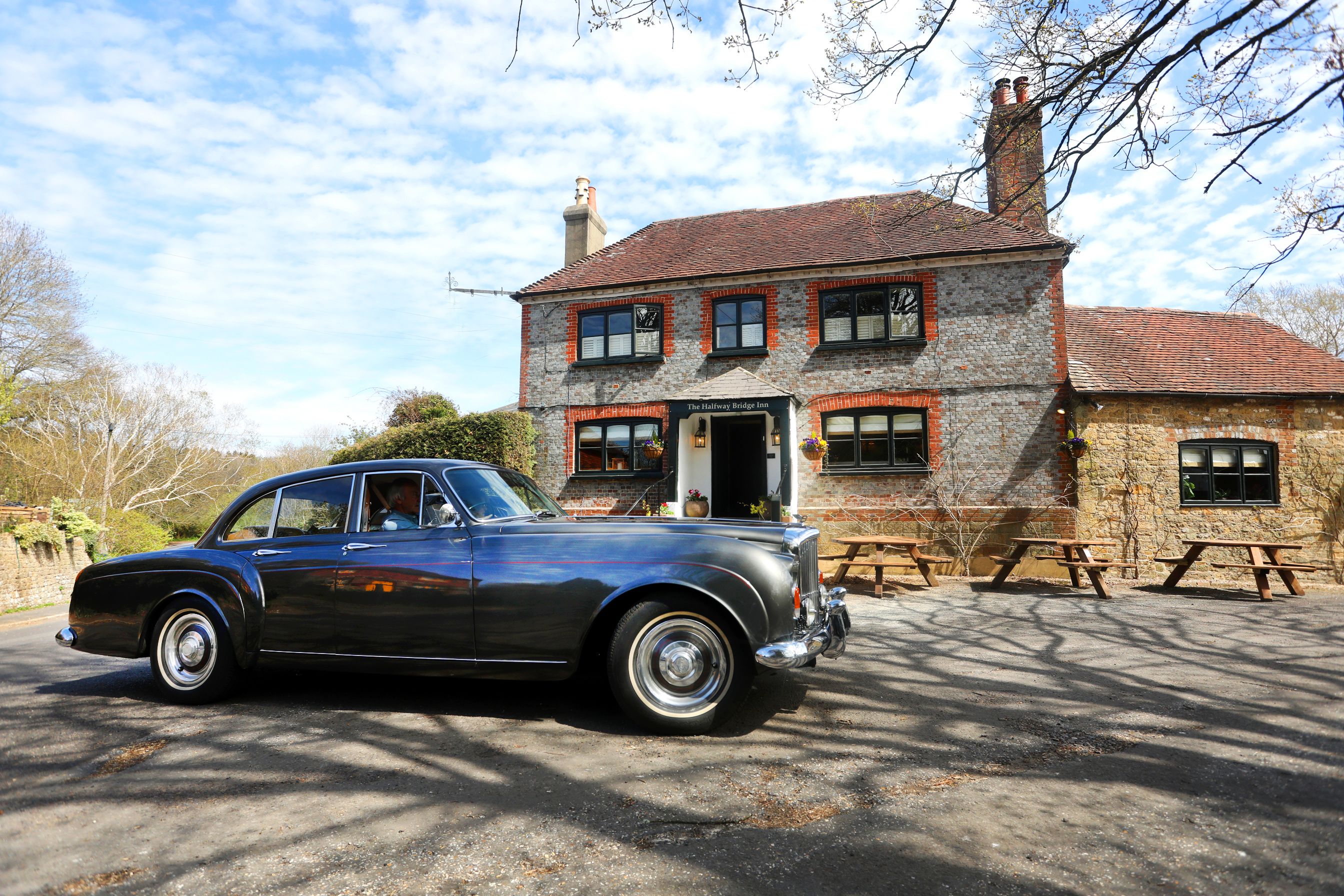
The Halfway Bridge Inn review: A dog-friendly South Downs oasis
If you're looking for a spot to lay your head in West Sussex, The Halfway Bridge seems a tempting and
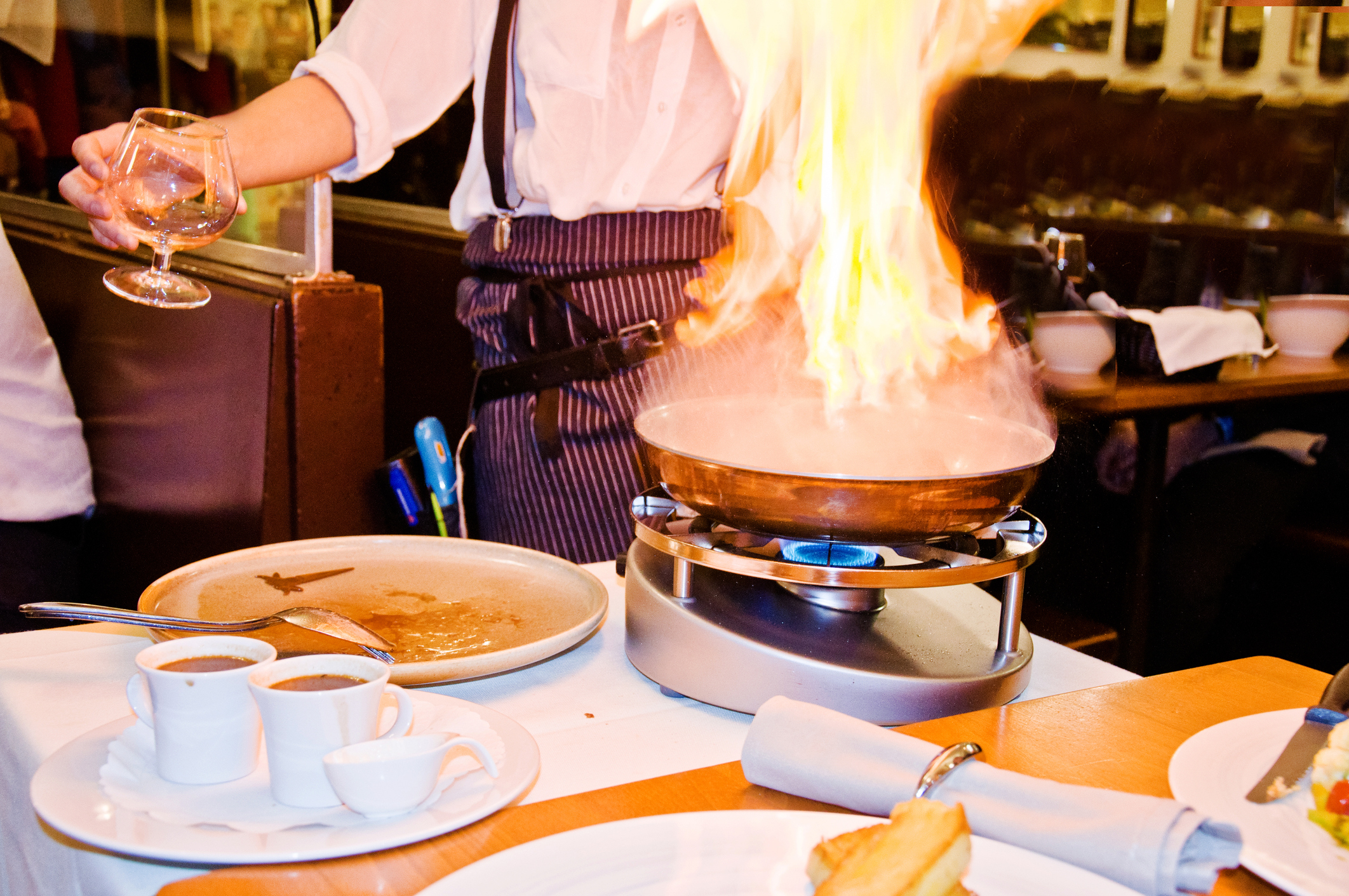
Tableside cooking: Dinner with a side of drama
Tableside cooking is nothing new, but modern-day diners have forgotten how fun it can be, says Tom Parker Bowles, who
Tom Parker Bowles is food writer, critic and regular contributor to Country Life.
